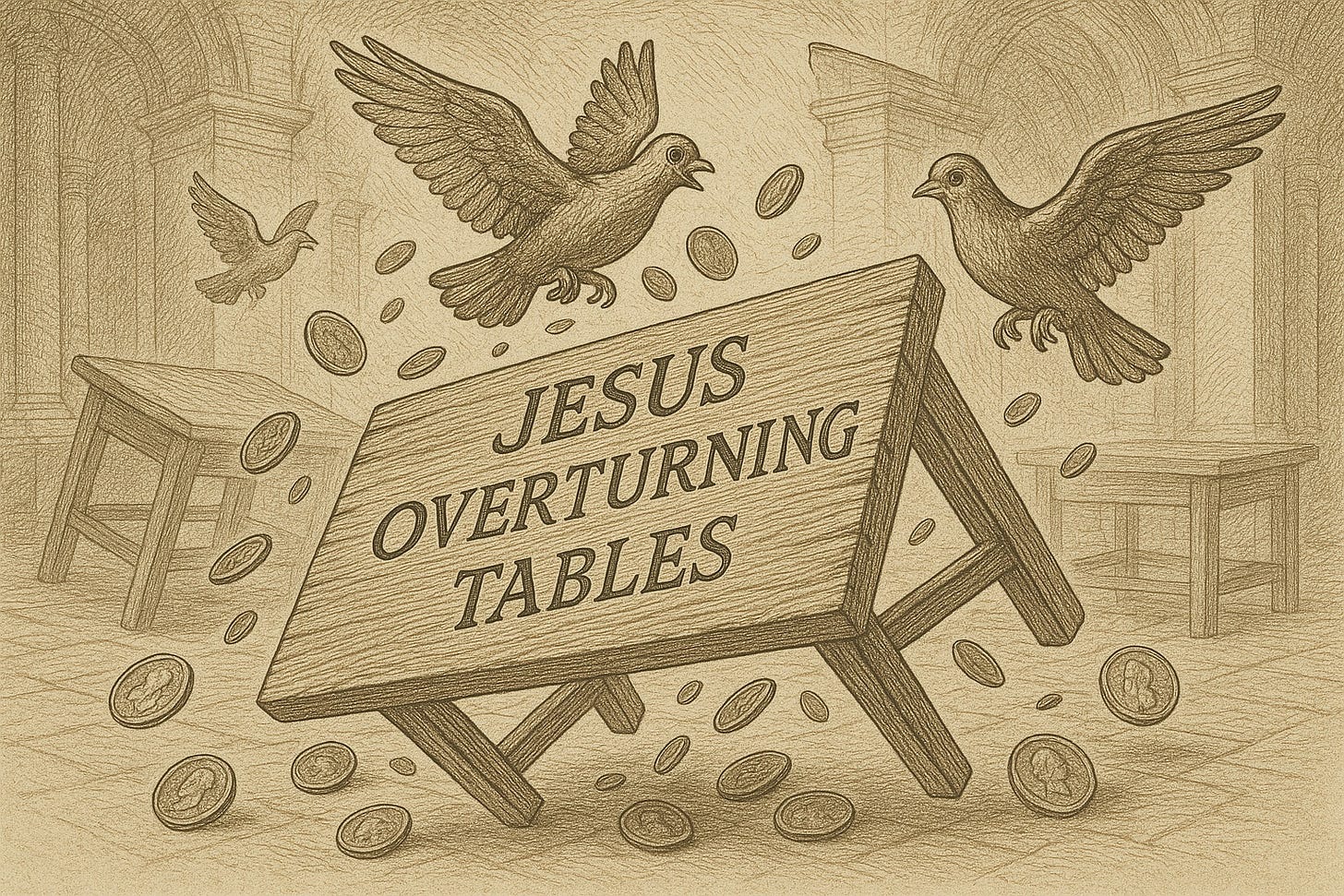Jesus Overturning Tables
Jesus didn’t overturn tables to be a revolutionary; He did it so the Gentiles could worship God, as those merchants were attempting to rob God of their worship.
Matthew 21:12-13
Then Jesus went into the temple of God and drove out all those who bought and sold in the temple, and overturned the tables of the money changers and the seats of those who sold doves. And He said to them, “It is written, ‘My house shall be called a house of prayer,’ but you have made it a ‘den of thieves.’”
Jesus didn’t overturn tables or crack the whip (John 2:13-17) to be a revolutionary or an activist.
There is a simple reason why Jesus cleansed the temple. The outer court was a space for Gentile worship (a“ house of prayer for all the nations” [Mark 11:17]), but the Israelites had occupied that space, leaving only the inner court (where Gentiles were not permitted to enter [Acts 21:27-30]) inaccessible to Gentiles. He was ensuring that Gentiles who wanted to worship God could do so freely.
The selling of animals was permissible because animals were to be sacrificed to God according to the Law of Moses, which Jesus even commanded others to do (e.g., Matthew 8:4; Luke 5:14). Before His death and resurrection, the Law of Moses was still in full effect, but once He died, animal sacrifices were useless in comparison with His own blood and the covering it provides for us (cf. Hebrews 9:13-15).
I will conclude by referencing Charles Spurgeon’s commentary on these verses:
[Those who] sold doves seemed licensed, since they dealt in a young pigeons and turtle doves for the sacrifices. But these traders were not in this serving God, but making profit for themselves, and therefore our Lord overthrew all their arrangements, and cleared the holy place... The Court of the Gentiles [was] being so grossly desecrated by these dealers. Our Savior likened His Father's house, when occupied by these buyers and sellers, to those caves in the mountains where robbers [went] to lurk in His day: ‘you are making it a robber's den.’ The words spoken by the King were strong, but not more so than the case before Him required. It is a king's business to break up the hiding-places of bandits, and Jesus did so. He could not bear to see His Father's house of prayer made into a haunt of robbers.1
Charles Spurgeon, The Gospel of the Kingdom: A Popular Exposition of the Gospel According to Matthew, (Passmore and Alabaster, 1893), pp. 178-179


